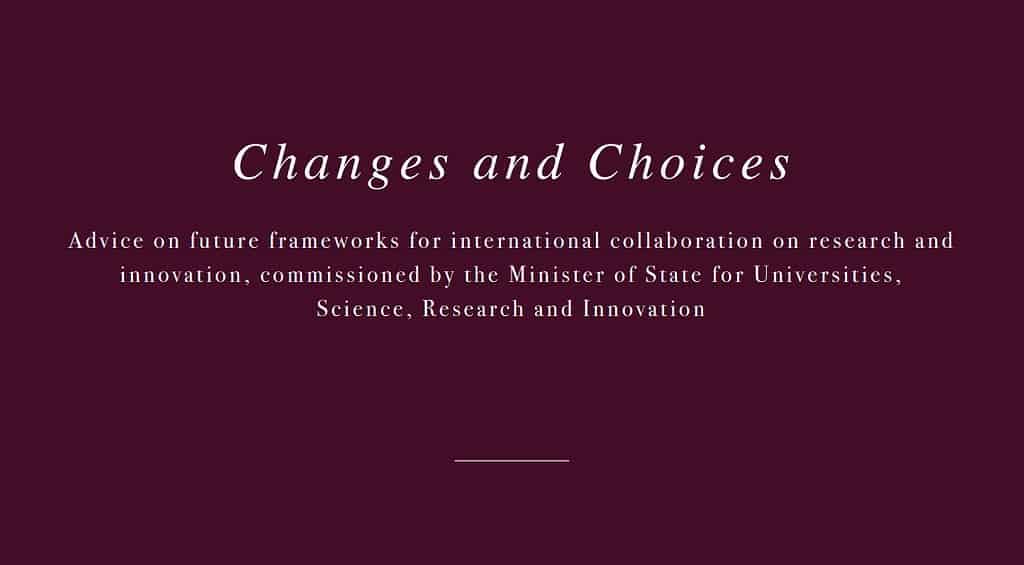Jo Reynolds, Director of Science and Communities at the Royal Society of Chemistry, on the RSC’s new summary report looking to unlock the potential of deep tech SMEs.
Let’s Support Deep Tech Innovators
30 Mar 2022
Unleashing the power of innovation is vital for economic growth, thanks to its role in raising productivity, creating jobs and tackling future challenges the UK and the world will face. Research, development and innovation in science and engineering are all key in finding solutions to many of the biggest societal and environmental challenges, from climate change to healthy aging and remediating pollution. Developing and scaling up new products, processes and technologies – then taking them to market – are all complex and taxing steps on the innovation journey. The Royal Society of Chemistry has explored that journey in our new summary report, Igniting Innovation summarising the full research findings of What Works for Innovation by the Enterprise Research Centre.
This research shows how chemistry-intensive small and medium sized enterprises (SMEs) are advancing technologies in many diverse areas and highlights their innovative nature. The chemical sciences underpin cleaner energy, human and environmental health, recycling and reuse, and sustainable agriculture. Our report focuses in particular on deep tech chemistry SMEs, a sub-group where research and development (R&D) plays an integral role, bringing the disruptive innovations to market that can be fundamental to achieving transformational solutions for people and the planet.
Examples of success stories of deep tech SMEs – and entrepreneurship – we have worked with include:
- Oxford PV, which has developed perovskite, a new affordable solar cell material that can convert significantly more energy from sunlight than existing silicon based solar cells.
- HexagonFab, which has developed Bolt, a portable analysis tool containing a graphene composite sensor that will accelerate drug research and manufacturing.
- Echion Technologies, which develops advanced lithium-ion battery materials and has developed a product that requires only a six-minute charge.
- Iceni Glycoscience is developing diagnostic technologies and treatments for infectious diseases using proprietary technology based on carbohydrate chemistry.
Despite deep tech SMEs’ potential as innovators, they could be better supported in the UK. The Government’s Innovation Strategy recognises this and Innovate UK has set out a range of actions aiming to support deep techs as part of its approach for the UK ‘to become a global hub for innovation by 2035’ in its Plan for Action for UK Business Innovation. The ‘What works for Innovation’ report adds to these plans and evidence. It also reveals the barriers faced by deep tech chemistry SMEs in taking novel ideas in R&D to real-world applications. It highlights the key actions a range of organisations should take to support these SMEs – if they are to maximise their contribution to the most pressing global challenges.
Our research highlights the complexity of their journey and a range of factors that all need to align for success: entrepreneurship capabilities, technology, management skills, technical skills, finance, access to the right facilities and equipment, access to good advice, networks, collaboration opportunities and effective intellectual property management. There is considerable evidence that deep tech chemistry SMEs take a particularly long time to develop their technologies. This causes knock-on challenges, for example attracting finance against hard to predict commercialisation timelines; and finding suitable premises. Many of these challenges are common to most deep tech SMEs, which highlights to me the importance of collaboration and partnership in science and engineering to support our innovative deep techs.
We also found increased difficulties facing SMEs based outside of the Golden Triangle of Oxford, Cambridge and London. Disadvantages to SMEs outside that area have included limited access to networks, investors and equipment, as well as greater challenges finding people with the right skills. This does raise a potential opportunity to support deep techs beyond the Golden Triangle as part of the Government’s approach to levelling up.
In response to identifying these barriers, the Royal Society of Chemistry has published a five-point action plan. It is based on practical steps we are taking to strengthen targeted support for SMEs, to build lasting, productive partnerships and to influence change in the UK innovation landscape. These include continuing to champion the role of deep tech chemistry SMEs, establishing support networks, and enabling connections with investors.
My biggest takeaway from this project is a huge positive – there are some amazing chemistry entrepreneurs doing a very difficult job to develop potentially game-changing technologies, products and processes. As a key part of implementing our action plan, our goal is to work with other influential stakeholders in the innovation ecosystem to help our deep tech chemistry SMEs fulfil their potential. Our report launch started this conversation and I’m grateful to Innovate UK and other speakers, including the CEO of deep tech SME Naturbeads (add link), for sharing their insight, experience and ideas.
If you are interested in talking to us or working with us to support deep tech SMEs, we would love to hear from you – email policy@rsc.org.

The Royal Society of Chemistry's new summary report, Igniting Innovation
Read moreRelated articles

The Physiological Society’s policy team on the health challenges facing older workers and the urgent need to develop a strategy to ensure older people are happy and healthy at work.

Lisa Morrison Coulthard, Research Director at the National Foundation for Education Research, on the Nuffield Foundation funded five year research programme providing insights into the essential employment skills needed for the future workforce

Sir Adrian Smith, Institute Director and Chief Executive of The Alan Turing Institute, and Graeme Reid, Professor of Science and Research Policy at UCL, set out the findings from their new independent report on international partnership opportunities for UK research and innovation

Tanya Sheridan and Izzie Radford from the Royal Society of Chemistry on how their analysis demonstrates the intangible benefits of participating in EU framework programmes, as well as highlighting some of the great scientific research seeking to solve global challenges.